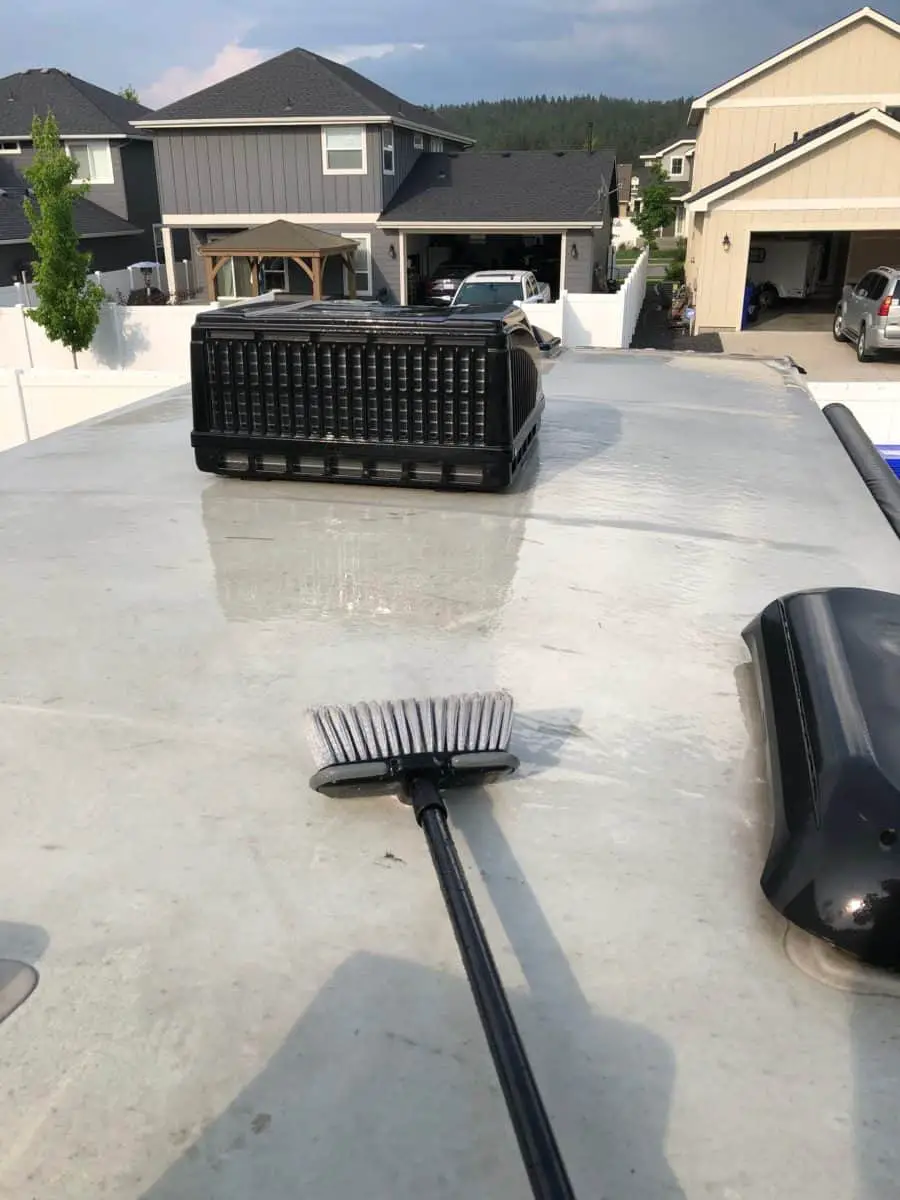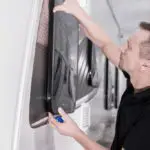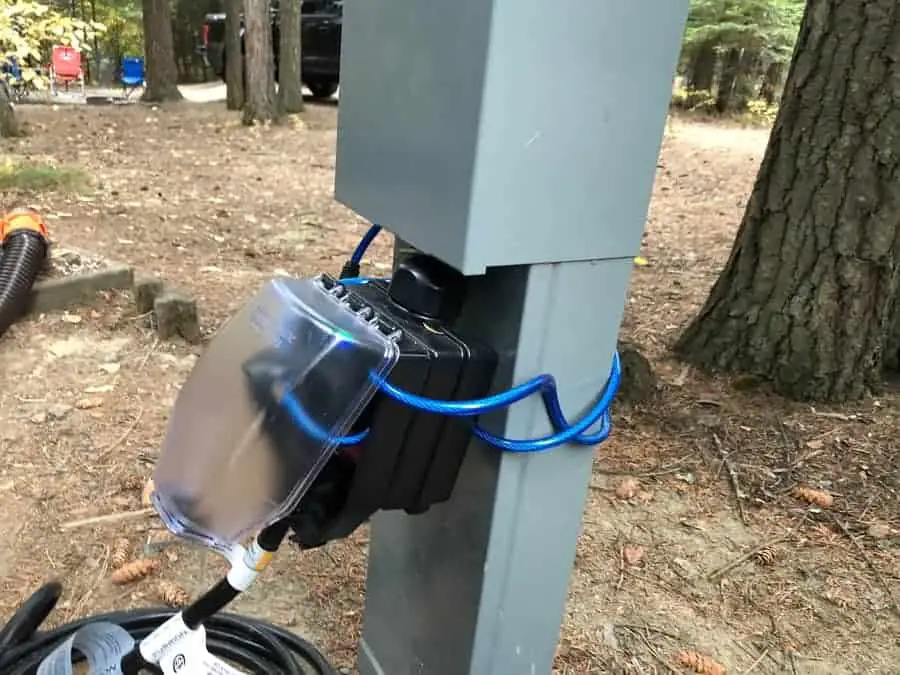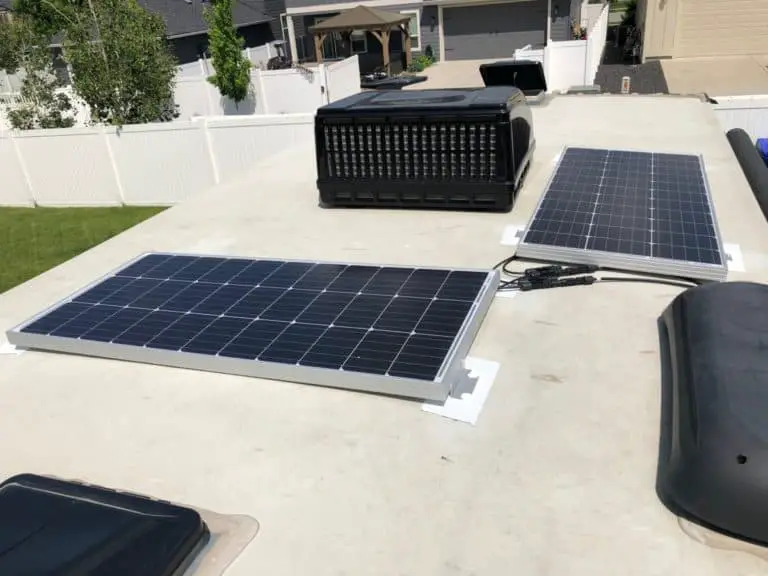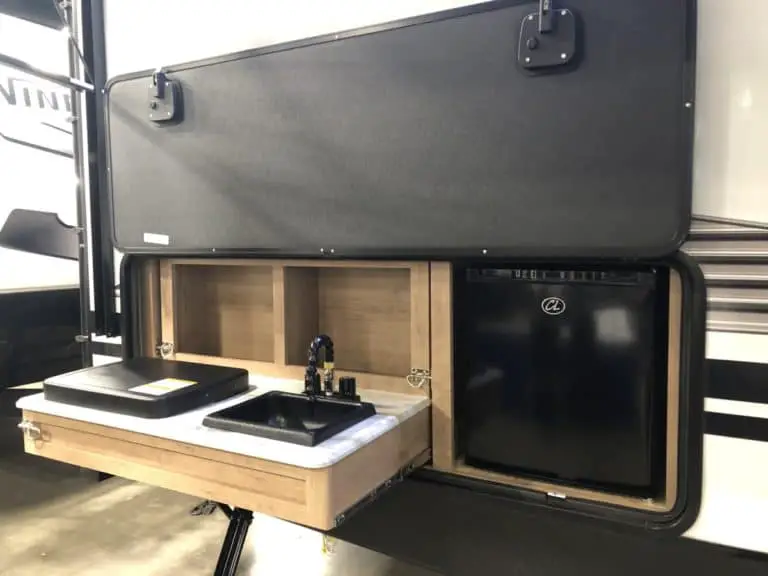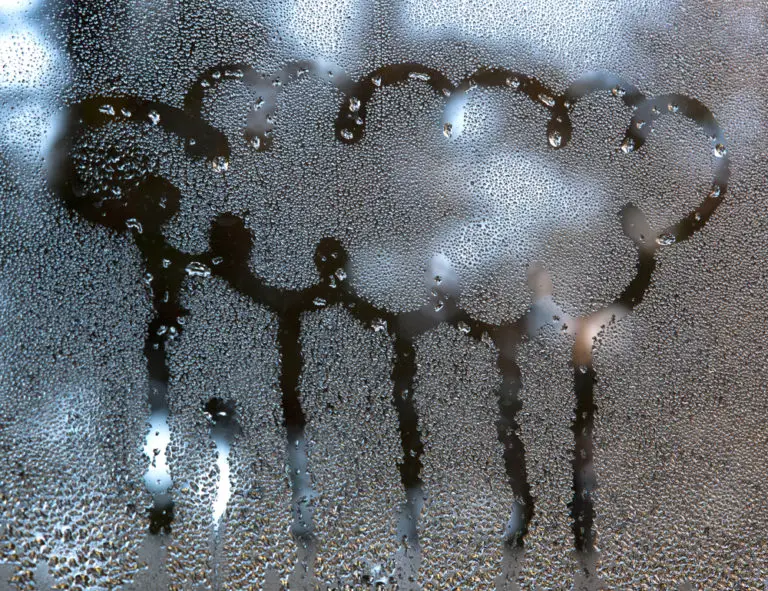How Often Should you Reseal a Travel Trailer Roof?
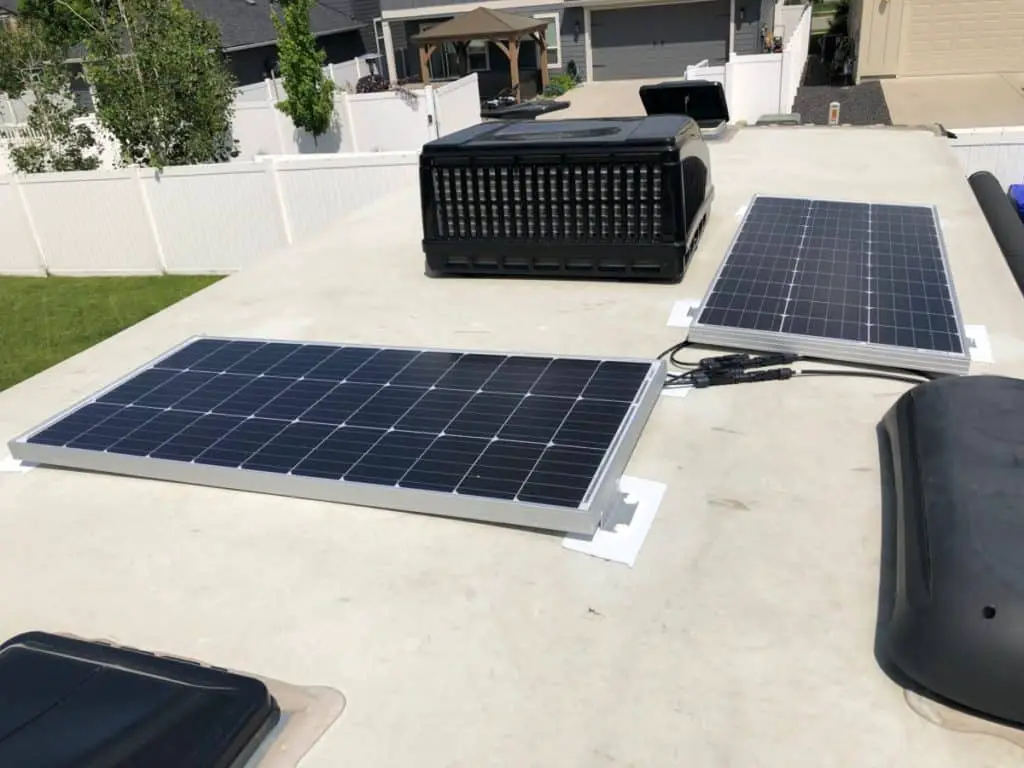
A travel trailer roof is one of the most important parts of the RV framework. Ensuring that it is properly maintained and sealed will protect the roof, your trailer, and all of your belongings that are inside.
When to reseal a travel trailer roof? Resealing your travel trailer’s roof every year is the best method in order to prevent leaks and to extend the life of your trailer and its roof. Checking the roof for leaks and sealant deterioration at least twice a year is also suggested in order to prevent any mishaps in your roof.
Without a sealed roof, trailers are more subjected to leaks, degradation, and expensive repairs. A proper reseal will prevent this from happening, and keep you on the road in your trailer longer.
Reasons to Reseal Your Roof
A leaking roof can quickly become a travel trailer owner’s worst nightmare. Even the smallest of holes can lead to significant damage and expensive repairs. Because of this, it is recommended that trailer owners regularly check up on the condition of their model, and have it sealed at least once a year.
Leaks can occur from a number of things, whether you are aware of the cause or not. Below are listed some of the top causes of roof leaks in a travel trailer.
- Roof Damage – The leading cause of a roof leak is damage to the roof itself. Falling tree branches, high winds, or sustained weight on the roof are all examples of how damage could occur and be followed by a roof leak. (Never use a pressure washer to clean your roof, or you will cause damage)
- Faulty Sealants – Many of the pieces on the roof of a trailer, such as the air conditioner or vents, are sealed using a sealant system. Over time and with exposure to the elements, the sealants can wear down or dry up. It will then pull away from the seam, leaving cracks and space for water to get inside.
- Aging – As is with most things, as the age of a trailer advances so will the issues that occur. Things will not work as well as they used to or seal to the same ability as they did on a new model. An aging roof on a travel trailer can diminish its effectiveness to keep out water over time, regardless of care or maintenance.
- Loosened Screws – There are a couple of things that can be screwed into the roof of your trailer, such as the access ladder, the air conditioner, and the screws holding the pieces together. With time, these screws can loosen their hold and create enough space for water to pass by and enter the interior portions of your roof.
These are just the main contributors to roof leaks on a travel trailer. There are many other reasons that could lead to a roof leak. This is why regular check ups to inspect the current condition of your travel trailer’s roof, from both the inside and the outside, is essential in order to catch these leaks before they happen or progress too far.
How to Know if Your Roof Needs Resealing
Travel trailer roofs are made out of a variety of materials, such as rubber, TPO, plastic, aluminum and fiberglass. Consult your owner’s manual in order to determine which material is present on your model, and the best way to care for the roof that you have.
During your regular check ups on the roof, you need to know what you are looking for in order to recognize the signs of a roof in need of a reseal. Be very careful anytime that you are on the roof of your trailer. If you fall off of the roof, you could have more significant issues than just a leaking trailer. Not all roofs are meant to hold the weight of a human on top. If your trailer does not have a ladder attached, this is probably the case, and you will want to use a personal ladder while you move it around the perimeter of the roof during your examination.
Once you have gained access to the roof, inspect the seams closely for any areas that may appear separated from the trailer. You can also use a small tool, such as a screwdriver or plastic scraper, to poke the sealants to test for elasticity. If it gives under the applied pressure, and returns to its original state, the sealant is still in decent condition. These are the most noticeable ways to tell if a trailer needs to be resealed.
Cost of Resealing a Trailer Roof
As with most services that need to be performed regularly on a travel trailer, sealing the roof is offered by most professional shops. By taking your trailer in, the job will be done much faster and more efficiently than when it is performed at home. But it comes with a price tag that is significantly higher than the alternative. The cost of having a professional shop reseal your trailer roof depends on a couple of factors, such as the length of your trailer, the materials your roof is made of and the amount of labor intensive work involved. On average, a roof reseal for your travel trailer will cost you in the range of a few hundred dollars up to a few thousand.
The alternative to having a professional perform the roof sealing is to do this job yourself at home. Unlike many other travel trailer repairs, this is one of the do it yourself projects that is fairly simple in comparison. It does not require a special set of skills or tools, and the materials to accomplish the task can be easily purchased at an RV maintenance store. This sealant is one of the best on the market for resealing roofs because it is self leveling. Roof tape is also great if you have a slash in your roof or a seam that needs fixed. Do lots of research beforehand to know what steps you will need to take before you get started.
Ways to Prevent Additional Roof Damage
The best method for lessening water damage possibilities on your trailer are preventative methods. There are a couple of techniques trailer owners can perform to avoid dealing with this event.
- Cleaning Your Roof – Roofs should be cleaned, at minimum, about three to four times a year. Depending on the location of where you park it or where you travel with your trailer, this number could increase. Make sure that you are using cleaners and brushes that were made for cleaning trailer roofs, as some supplies could cause a break down of the sealants even faster than normal wear depending on the ingredients.
- Cover Your Trailer – Keeping your travel trailer covered, either in a garage or under an awning or tarp, will protect the roof from rain and winter weather that could deteriorate the integrity of the roof and its linings.
- Use Other Protectants – There are also multiple options for supplies that can be continually used on your travel trailer that will help guard your roof from the elements and prevent water damage. There are UV ray protectants that can be applied regularly to the roof to condition and moisturize the roof as well. Using these products will help prevent the possibility of a water leak.
A leaking roof can be hard to spot and even more difficult to fix if it has progressed too far. Performing regular checks up and resealing your trailer’s roof every year will help to limit the issues that could arise because of this.
Be the first to be notified about FREE tips, hints, coupon codes, and email-exclusive information. All for FREE!

